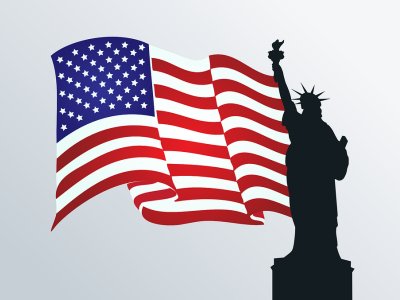
AMERICAN POLE
At the height of the Vietnam war, opposition to it was evenly distributed in the US between Democrats and Republicans. It is hard to imagine a similar outcome today. On a whole range of issues, there is barely any overlap in the views of adherents to the two great parties.
In 1960, only 5% of Republicans and 4% of Democrats said they would be upset if their child married a member of the other political party. By 2010, this had jumped to 49% of Republicans and 33% of Democrats.
Polarisation is a word we heard very little of at the turn of the century, but within two decades it has come to define political life, notably in the US. The tribal nature of American politics is visceral, uncompromising and it has been dissected imaginatively by Ezra Klein in Why We’re Polarised (Profile Books 2020).
He summarises the last fifty years of American politics thus:
We became more consistent in the party we vote for not because we came to like our party more…but because we came to dislike the opposing party more.
How we feel matters much more than what we think, and in elections, the feelings that matter most are often our feelings about the other side.
Such is the strength of tribal thinking that rivalry has become more important than policy. Fear and anger motivate people better and quicker than appeals to love and hope and the architecture of social media has fed this appetite.
For Klein, there is what he terms a polarisation feedback loop. Institutions polarise to appeal to a more polarised public, which further polarises the public, which forces institutions to polarise.
This is the unpromising terrain of modern democratic politics.
There is a further trend in play. As people are ‘sorted’ into camps by their political allegiances, many other traits, interests and leanings are coming to shape our identities and thus formed, are being pulled to these political poles like filings to a magnet. Once sorted into our boxes, we are expected to conform to every belief within it and are deemed inauthentic, even fraudulent, if we don’t. In the US, it’s assumed that to be pro-life is to be pro-gun; in the UK, to be a Brexiteer means you have to be anti-immigration. Anywhere, to be a Covid anti-masker means you must be an anti-vaxxer. If you’re Vegan, you can’t possibly be on the right. If you’re anti-abortion, you can’t possibly be on the left.
These are only some ways in which the magnetic poles of identity stop people from plotting their own course. It makes life awkward for people with eclectic views because they are not playing the role expected of them.
Polarisation may not be wrong in and of itself. If consensus leads to suppression and injustice, then polarisation, in bringing contentious issues to the surface, may be doing us a favour - as Klein argues.
Jesus himself was a heavily polarising figure. It was difficult to be vanilla over his absolute claims. You were either for him or against him. He was either the Messiah or he wasn’t. There was no middle ground. But this does not mean his people must be sorted into specific world-views in order to be saved – and neither should the Church expect this of them.
There will continue to be many things that Christians disagree on that are not at all central to belief or acceptance. If trends in polarisation continue, however, this may begin to show inside the Church, for it too is part of society and the same tendency to sort can manifest itself. Some people may feel greater pressure not to express their social and political views in church for fear of ostracisation. In the UK, the Church has seen this most clearly in the Brexit debate. But it will not be the only issue as we polarise. If the early Church could find a way for Jews and Gentiles to live and worship alongside one another successfully, it should be in our DNA to overcome the phenomenon of sorting.
POPULAR ARTICLES

Obama's Covert Wars
The use of drones is going to change warfare out of all recognition in the next decades.

Through A Glass Starkly
Images of traumatic incidents caught on mobile phone can be put to remarkable effect.

What Are British Values?
Is there a British identity and if so, what has shaped the values and institutions that form it?


